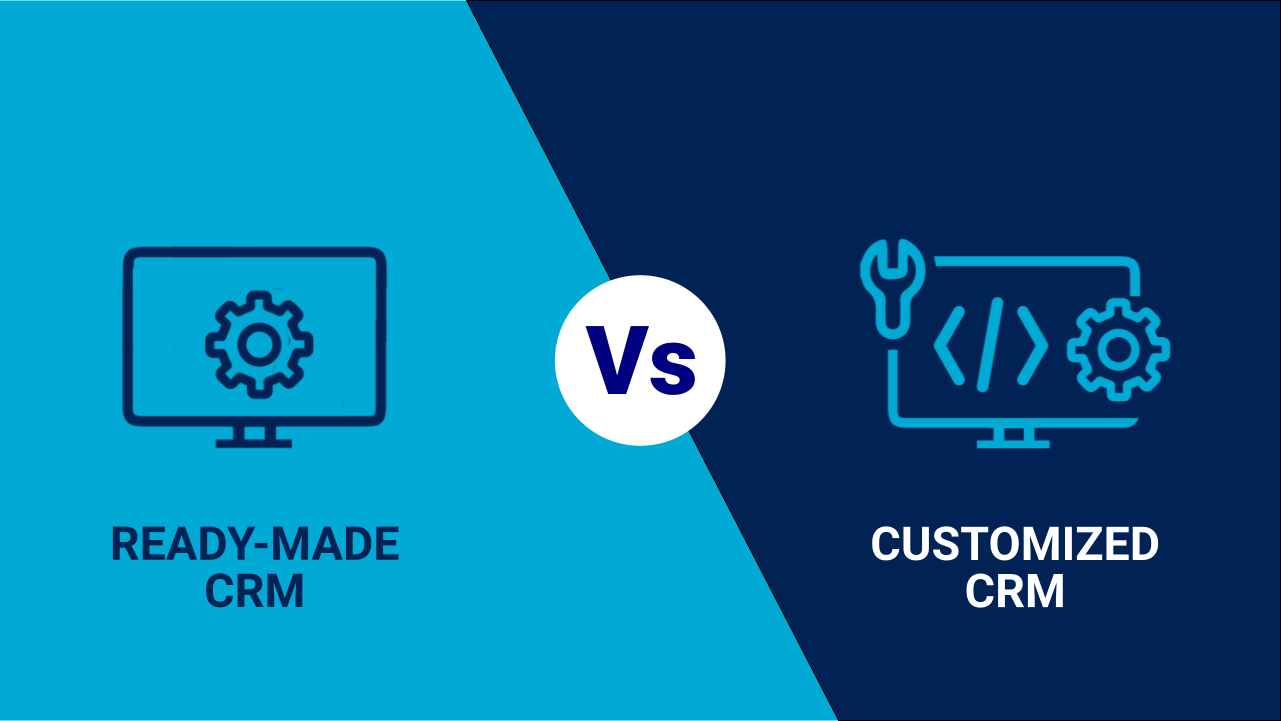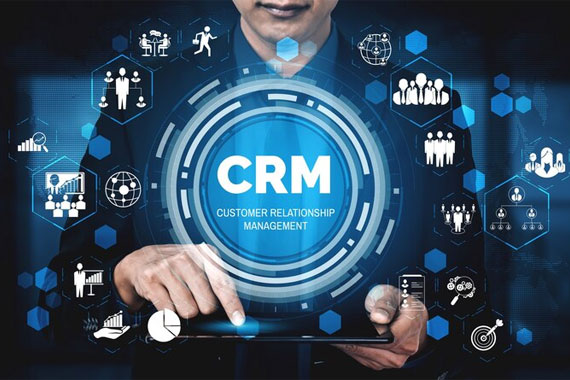In the fast-moving digital economy of the USA, managing customer relationships efficiently is no longer optional—it’s essential. Every business, from local startups in Dallas to large corporations in New York City, needs a CRM that doesn’t just store data but actively powers growth. This is where the real debate begins: Do you invest in a custom CRM development company or settle for a prebuilt CRM?
At Matebiz Pvt Ltd, we often work with businesses that start off with prebuilt CRMs, only to outgrow them within a short span. As a leading custom CRM development company, we’ve seen this pattern repeat across industries. A CRM system built from scratch, based on real operational flow, gives unmatched control and scalability.
Being based in India and serving clients globally, including across the USA, we understand how dynamic customer behavior, compliance needs, and industry-specific requirements vary. This blog lays out the differences between custom-built and prebuilt CRM systems and which route makes more sense for American businesses aiming for long-term growth.
Custom LMS Development and CRM: A Strategic Match
When a CRM goes beyond just sales and support, integrating with internal lead platforms becomes a smart move. That’s where custom LMS development plays a crucial role. LMS (Lead Management System) platforms are no longer limited to HR or training departments—they’re deeply tied to customer lifecycle, sales performance, and product knowledge.
Businesses in the USA are increasingly adopting custom LMS development alongside CRMs to:
Train new hires based on CRM data and insights
Automate onboarding journeys for clients and employees
Deliver targeted product tutorials based on customer segmentation
Monitor lead effectiveness linked to actual CRM performance metrics
Why Combine CRM with LMS?
Seamless lead pathways across departments
Personalized training programs tied to sales pipelines
Centralized reporting on performance and lead outcomes
Scalable modules for diverse teams and client segments
What Makes a Custom CRM Development Company Stand Out?
A custom CRM development company offers full control—no forced templates, no unwanted tools, and no generic workflows. Instead of adapting to software, the software adapts to the business.
Here’s how custom-built CRM systems differ from off-the-shelf options:
Core Features of a Custom CRM Development Company:
Modular Build – Add or remove functionalities as needed
Tailored Dashboards – Visuals that reflect actual KPIs and data points
Advanced Security Layers – Sensitive client or transaction data remains fully protected
Deep Integration – CRM talks to accounting software, email platforms, LMS, and more
Process Mapping – CRM mirrors how real teams interact, follow-up, close, and nurture leads
Prebuilt CRM: Convenient But Not Always Fit-for-Purpose
Prebuilt CRMs like HubSpot, Salesforce, or Zoho offer plug-and-play convenience. But businesses often find themselves hitting limits quickly. Features are often broad but shallow—and crucial automation or integrations end up locked behind paywalls or upgrades.
Pros of Prebuilt CRM:
Quick deployment
Familiar UI for teams
Lower upfront cost
Extensive community and third-party plugins
Where Prebuilt CRMs Fall Short:
Rigid Workflow Structure – Limited customization of core logic
Higher Long-Term Costs – Subscriptions, feature upgrades, and user licenses stack up
Data Migration Issues – Exporting large volumes of client data is a hassle
Limited Niche Adaptability – Not suitable for unique sales cycles or complex operations
Comparison Snapshot: Custom vs Prebuilt CRM
Who Should Choose What?
Prebuilt CRM is ideal for:
- Very small businesses
- Short-term pilots or MVP testing
- Limited operations with simple sales cycles
Custom CRM is best for:
- Mid to large USA-based businesses
- Teams with multi-stage or multi-department workflows
- Firms needing deep data security and industry compliance
Companies looking to integrate CRM with custom LMS development
Bullet Checklist Before Deciding:
- Are current CRM features unused or irrelevant?
- Do teams complain about limited flexibility or poor UX?
- Is the subscription model becoming cost-heavy?
- Do business processes feel squeezed into software limits?
- Do you need specific modules that no prebuilt tool offers?
If the answer to 2 or more is “yes,” it’s probably time to consult a custom CRM development company.
Pro Tip:
Always map out your existing workflows before even discussing CRM specs. Good development starts with understanding real business flow—not just tech features.
Final Thoughts: The Right CRM Is One That Works for You
No two businesses are the same—especially in a market as diverse as the USA. While prebuilt CRMs serve a purpose, the moment business processes outpace standard features, issues begin to arise. Matebiz, as a leading custom CRM development company doesn’t just write code—it builds a solution aligned with how real teams operate, interact, and evolve.
CRM software isn’t just about collecting customer data—it’s about converting insights into action. When done right, a custom CRM becomes the control center of your business—especially when paired with custom LMS development that ensures teams are continuously learning and adapting.
Let your CRM fit your business, not the other way around.
Read More: 10 Reasons Your Small Business Needs a Custom CRM Development Company Today
FAQ
1. How long does it take to build a custom CRM system?
Typically, custom CRM development can take anywhere from 4 to 12 weeks depending on features, integrations, and scope. Matebiz works closely with businesses to ensure timely and efficient delivery of CRM platforms.
2. Can I integrate a custom CRM with my existing tools?
Yes, integration is one of the biggest advantages of a custom CRM. With development services from Matebiz, you can sync your CRM with email marketing tools, payment systems, ERP platforms, and more.
3. Are custom CRM solutions more secure than prebuilt CRMs?
Yes, custom CRMs offer better control over data security, access rights, and hosting. Matebiz ensures every CRM project is developed with enterprise-level security and compliance standards in mind.










